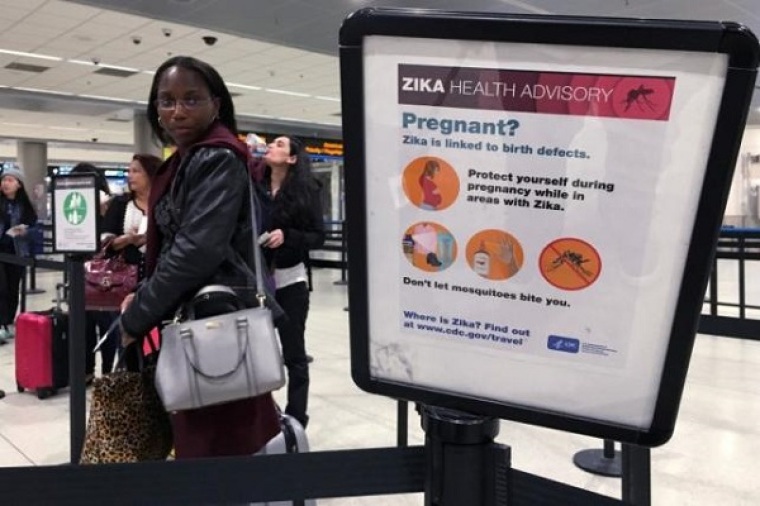Abortion pill orders increase in Zika-stricken Latin American countries
The demand for abortion pills has increased in seven Latin American countries hardest hit by Zika virus, according to a new study published Wednesday, June 22.
Researchers investigated whether the number of abortion pill orders in 19 Latin American countries is affected by the Zika virus alert. They published their results in the New England Journal of Medicine.

Looking at data from January 2010 to March 2016, researchers found out that there was a 36 to 108 percent increase of abortion pill orders in several countries — particularly those where abortion is illegal, autochthonous Zika virus transmission has been detected, and public advisories have been released to warn the public against the virus.
In Brazil, Venezuela and Ecuador, the figures almost doubled. In Colombia, Honduras, El Salvador and Costa Rica, the demand for abortion pills increased from 36 to 76 percent.
The study used data from Women on Web, an online nonprofit organization that helps connect women with doctors and suppliers of abortion meds in countries where abortion is restricted or illegal.
"In Latin American countries that issued warnings to pregnant women about complications associated with Zika virus infection, requests for abortion through WoW increased significantly," the study authors wrote.
They added that their data could be underestimated because it does not include women who opted to terminate their pregnancies through other means.
Gilda Sedgh, head of research at Guttmacher Institute and not involved in the study, said the figures in the study could be "spurious" because the WoW website only "accounts for a small share of all abortions in that part of the world," The New York Times reported.
She added that the website may have gained more visibility online when the Zika virus alerts exploded in 2015. However, the study could be "an early warning sign" for increased abortion demand because of Zika.
Zika virus is transmitted by the Aedes aegypti mosquito, the same vector that carries the dengue and chikungunya viruses. Its symptoms are quite mild and mostly include fever, joint pain, rash and conjunctivitis, which can last for a few days.
However, it has been shown to cause microcephaly and other brain defects in babies born to mothers who were transmitted with the virus while they were pregnant, according to the U.S. Centers for Disease Control and Prevention.
The Pan American Health Organization issued a Zika virus alert in Brazil, where the first cases of Zika-linked microcephaly were observed, in May 2015. In February, the World Health Organization announced that Zika virus disease is a Public Health Emergency of International Concern.
There has been no local Zika virus transmission seen in the U.S., but the virus has been detected on persons who traveled to Zika-stricken countries. Health authorities have cautioned pregnant women and women planning to get pregnant to avoid going to such countries and take measures to prevent mosquito bites.
 Christians don't have to affirm transgenderism, but they can’t express that view at work: tribunal
Christians don't have to affirm transgenderism, but they can’t express that view at work: tribunal Archaeology discovery: Medieval Christian prayer beads found on Holy Island
Archaeology discovery: Medieval Christian prayer beads found on Holy Island Presbyterian Church in America votes to leave National Association of Evangelicals
Presbyterian Church in America votes to leave National Association of Evangelicals Over 50 killed in 'vile and satanic' attack at Nigerian church on Pentecost Sunday
Over 50 killed in 'vile and satanic' attack at Nigerian church on Pentecost Sunday Ukrainian Orthodox Church severs ties with Moscow over Patriarch Kirill's support for Putin's war
Ukrainian Orthodox Church severs ties with Moscow over Patriarch Kirill's support for Putin's war Islamic State kills 20 Nigerian Christians as revenge for US airstrike
Islamic State kills 20 Nigerian Christians as revenge for US airstrike Man who served 33 years in prison for murder leads inmates to Christ
Man who served 33 years in prison for murder leads inmates to Christ


 Nigerian student beaten to death, body burned over ‘blasphemous’ WhatsApp message
Nigerian student beaten to death, body burned over ‘blasphemous’ WhatsApp message 'A new low': World reacts after Hong Kong arrests 90-year-old Cardinal Joseph Zen
'A new low': World reacts after Hong Kong arrests 90-year-old Cardinal Joseph Zen Iran sentences Christian man to 10 years in prison for hosting house church worship gathering
Iran sentences Christian man to 10 years in prison for hosting house church worship gathering French Guyana: Pastor shot dead, church set on fire after meeting delegation of Evangelicals
French Guyana: Pastor shot dead, church set on fire after meeting delegation of Evangelicals ‘Talking Jesus’ report finds only 6% of UK adults identify as practicing Christians
‘Talking Jesus’ report finds only 6% of UK adults identify as practicing Christians Mission Eurasia ministry center blown up in Ukraine, hundreds of Bibles destroyed: 'God will provide'
Mission Eurasia ministry center blown up in Ukraine, hundreds of Bibles destroyed: 'God will provide' Church holds service for first time after ISIS desecrated it 8 years ago
Church holds service for first time after ISIS desecrated it 8 years ago Burger King apologizes for 'offensive campaign' using Jesus' words at the Last Supper
Burger King apologizes for 'offensive campaign' using Jesus' words at the Last Supper Uganda: Muslims abduct teacher, burn him inside mosque for praying in Christ’s name
Uganda: Muslims abduct teacher, burn him inside mosque for praying in Christ’s name